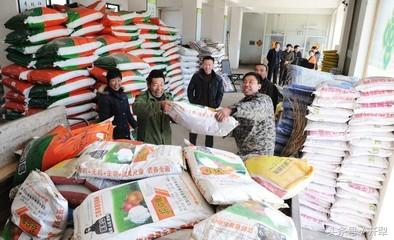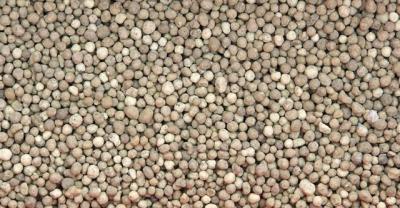Harm of Pesticide and Chemical Fertilizer and Popularization of Biological Organic Fertilizer
At present, there are about 200 million mu of cultivated land in the country, such as food safety, ecological security and so on. Among them, more than 50 million mu are moderately and severely polluted by heavy metals; this part of cultivated land needs to be repaired and nurtured before it can be restored to normal agricultural production.
Distribution Map of lead pollution in China
The distribution map shows that in some areas of Liaoning, Hunan, Zhejiang, Jiangxi, Sichuan, Guizhou, Guangdong, Guangxi and other provinces, heavy metal pollution exists in varying degrees, most of which are cadmium pollution, and mainly in factory and mining areas.
Adverse effects of chemical fertilizers and pesticides
Flow of pesticides and fertilizers
The extensive use of chemical fertilizer results in the decrease of soil organic matter content, the increase of heavy metal ion content, soil consolidation, and the soil becomes very barren, affecting the yield and quality of crops. Organic fertilizer can effectively improve soil quality. After organic fertilizer is applied to farmland, it can increase soil humus, improve soil structure, improve soil fertility, improve the living conditions of soil microorganisms, increase the number and activity of beneficial microorganisms, and promote the release of soil nutrients.
Pesticides are a kind of special chemicals. although they can prevent and control agricultural and forestry diseases and insect pests, they will be transferred to the human body through the enrichment of the food chain and eat contaminated food, vegetables and fruits for a long time. It is an important cause of cancer, arteriosclerosis, cardiovascular diseases, fetal malformations, stillbirth, premature senility and other diseases.
Harm map of heavy metals to human organs
Pesticides and chemical fertilizers affect the eutrophication of surface water and groundwater at the same time, and agricultural pollution has become a major source of water pollution as much as industrial pollution.
Promotion of bio-organic fertilizer
Bio-organic fertilizer refers to the combination of specific functional microorganisms and organic materials mainly derived from animal and plant residues (such as animal and poultry manure, crop straw, etc.). It is a kind of fertilizer with the effect of both microbial fertilizer and organic fertilizer.
Bio-organic fertilizer can improve soil: conditioning soil, activating soil microbial activity rate, overcoming soil consolidation and increasing soil air permeability.
Bio-organic fertilizer can improve the utilization rate of chemical fertilizer and reduce the use of chemical fertilizer: reduce water loss and evaporation, reduce the pressure of drought, protect fertilizer, reduce chemical fertilizer, reduce saline-alkali damage, and in the case of reducing the amount of chemical fertilizer or gradually replacing chemical fertilizer, improve soil fertility and greatly increase the production of food crops, cash crops, vegetables, melons and fruits.
Bio-organic fertilizer can resist diseases and insect pests and improve plant survival rate: after high temperature ripening, it kills most pathogens and eggs and reduces the occurrence of diseases and insect pests; bio-organic fertilizer can improve crop rhizosphere microflora and plant resistance to diseases and insect pests; enhance crop disease resistance and stress resistance, reduce crop diseases and soil-borne diseases caused by continuous cropping, and reduce the incidence of diseases It has a good effect on the prevention and control of mosaic disease, black shank and anthracnose, and enhances the comprehensive defense ability of crops to adverse environment.
Ecological organic fertilizer has a full range of nutrient elements: after entering the soil, beneficial microorganisms in bio-organic fertilizer form a symbiotic and proliferative relationship with soil microorganisms, inhibit the growth of harmful bacteria and transform them into beneficial bacteria, interact and promote each other. Play a synergistic effect of the population, beneficial bacteria produce a large number of metabolites in the process of growth and reproduction, promoting the decomposition and transformation of organic matter. It can directly or indirectly provide a variety of nutrients and irritants for crops, promote and regulate crop growth.
Bio-organic fertilizer reduces environmental pollution, is safe and non-toxic to people, animals and the environment, and is a kind of environment-friendly fertilizer.
- Prev

Problems needing attention in the selection and purchase of Chemical Fertilizer
Problems that should be paid attention to in the selection and purchase of chemical fertilizers before and after the Spring Festival is the season for farmers to concentrate on buying chemical fertilizers. There are many varieties of chemical fertilizers sold in the market, and all kinds of new fertilizers are also in succession.
- Next

A simple method for distinguishing between true and false chemical fertilizers
Author: Shengshi Huolongguo editor's note: as the saying goes, "A banker with a flower depends entirely on fat." In agricultural production, chemical fertilizer is essential, using chemical fertilizer.
Related
- Fuxing push coffee new agricultural production and marketing class: lack of small-scale processing plants
- Jujube rice field leisure farm deep ploughing Yilan for five years to create a space for organic food and play
- Nongyu Farm-A trial of organic papaya for brave women with advanced technology
- Four points for attention in the prevention and control of diseases and insect pests of edible fungi
- How to add nutrient solution to Edible Fungi
- Is there any good way to control edible fungus mites?
- Open Inoculation Technology of Edible Fungi
- Is there any clever way to use fertilizer for edible fungus in winter?
- What agents are used to kill the pathogens of edible fungi in the mushroom shed?
- Rapid drying of Edible Fungi

